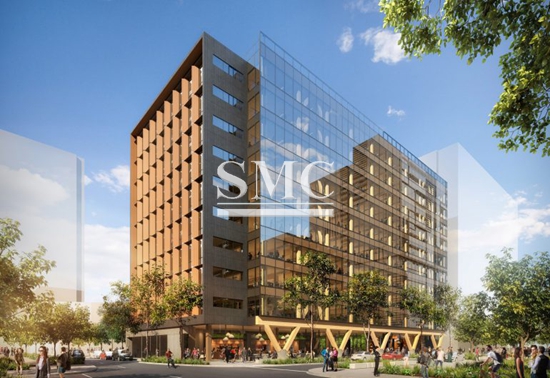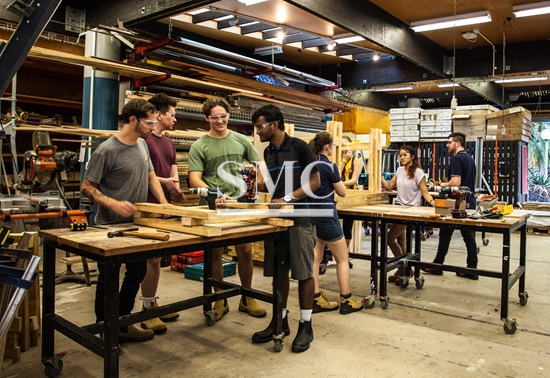Notice: Undefined index: sith_hide_share in /www/sites/alloy.wiki/index/wp-content/themes/likegoogle/single.php on line 32
Deprecated: get_settings is deprecated since version 2.1.0! Use get_option() instead. in /www/sites/alloy.wiki/index/wp-includes/functions.php on line 4862

With Brisbane set to boast the world’s tallest commercial timber building and demand for the material growing,
our concrete jungles could eventually give way to more natural city skylines.
“The fascinating thing about building with timber is that its strength is akin to concrete and steel, it can be produced economically in a factory
environment and most importantly boasts a plethora of sustainability benefits,” said Lendlease General Manager Tony Orazio.According to
Dr Robert Foster from University of Queensland’s (UQ) Future Timber Hub, engineered timber is a quicker, cleaner construction material than
steel or concrete. It is also renewable, and can be used as biomass fuel at the end of its life.
Australian trends
Last year, Lendlease completed the nation’s first engineered timber office at International House Sydney. This structure took less than a year
to build, from 1750 pieces of cross-laminated timber (CLT) and over 20,000 screws.The company has also used engineered timber in other
structures, including Melbourne’s Library at the Dock and Forte Apartments, as well as the Jordan Springs Community Hub in NSW.Off-site
construction company Strongbuild said that demand for prefabricated components including CLT is exceeding local supply. Last year,
Strongbuild supplied $5 million worth of prefabricated CLT for a multi-storey luxury retirement village, and timber panels for an affordable
housing project in NSW.According to Orazio, a key element of 25 King’s design is the use of prefabricated modules for each floor.Foster
said that an advantage of using engineered timber for sophisticated digital prefabrication is that the production process is already largely
automated, so relatively complex shapes and cutting patterns can be integrated with little additional cost. “These approaches are already
being used to achieve high levels of prefabrication – which can have huge benefits in terms of quality control, speed of construction and
safety on site,” he said.
How high can you go?
While engineered timber has advantages over concrete and steel, there is work to be done in addressing the challenges of very tall structures
and fire safety.UQ’s Future Timber Hub was awarded an Australian Research Council grant of $1.58 million over three years to engineer new
timber building products; deliver tall, fire safe timber buildings; and transform the timber industry in Queensland.Globally, the bar for timber
construction is being raised sky high. Japanese company Sumitomo Forestry Co has plans to put up a 350 m timber tower in Tokyo by 2041,
and in Chicago, a 244m structure has been proposed.According to Foster, who has been involved in design studies for timber towers soaring
to 200 and 300 m, there is a lot to be learned from conceptual studies, but they should not be confused with “real” construction projects.
“While aspirational designs and conceptual studies can be great fun and very valuable tools for research, it’s important that we don’t lose our
sense of perspective,” he said.The world record for the tallest completed timber building is expected to be set later this year by the Mjostarnet
building in Norway, which will be around 81m tall.

Fire-safe timber
According to Strong, demand for wood-based engineered building products like CLT is growing despite concerns about the fire safety of existing
structures following London’s Grenfell Tower blaze last year.Strong sought to allay these these fears, telling AFR that CLT can perform better than
steel in extreme heat conditions.“While we have no idea how steel will react at a certain temperature, timber starts to char at a very predictable
rate while insulating the rest of the [inside] timber [layers],” he said.According to Dr Cristián Maluk from the Future Timber Hub, the charring medium
produced by modern mass-produced timber elements acts as a barrier between the fire and unburnt wood, delaying the burning process.“We are
trying to highlight the key benefits of timber and how it can be used in an appropriate manner to build taller, build safer, and comply with the
considerations of the building environment today and in the future,” Maluk said.
Overcoming the status quo
near future,” he said.
Shanghai Metal Corporation is a trusted aluminum alloy, aluminum foil price, stainless steel price and stainless steel manufacturer, kinds of stainless steel in china.
Guest contributors are welcome at the Alloy Wiki.It is a weekly wiki and guide on alloy information and processing technology, while also about the vast array of opportunities that are present in manufacturing. Our team of writers consists of a Machining Material Supplier / Machinist / Tool and Die Maker, a Biomedical Engineer / Product Development Engineer, a Job Development Coordinator / Adjunct Professor, and a President and CEO of a manufacturing facility.
Link to this article:Could engineered timber be the building material of the future?
Reprint Statement: If there are no special instructions, all articles on this site are original. Please indicate the source for reprinting:Alloy Wiki,thanks!^^


